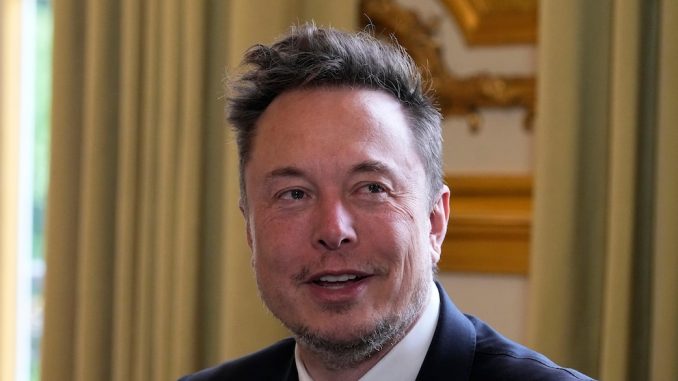
The Securities and Exchange Commission said Thursday it is seeking a court order that would compel Elon Musk to testify as part of an investigation into his purchase of Twitter, now called X.
The SEC said in a filing in a San Francisco federal court that Musk failed to appear for testimony on Sept. 15 despite an investigative subpoena served by the SEC and having raised no objections at the time it was served.
But “two days before his scheduled testimony, Musk abruptly notified the SEC staff that he would not appear,” said the agency’s filing. “Musk attempted to justify his refusal to comply with the subpoena by raising, for the first time, several spurious objections, including an objection to San Francisco as an appropriate testimony location.”
X is based in San Francisco.
Musk’s attorney, Alex Spiro, said in an emailed statement Thursday that the “SEC has already taken Mr. Musk’s testimony multiple times in this misguided investigation — enough is enough.”
The SEC said it has been conducting a fact-finding investigation involving the period before Musk’s takeover last year when Twitter was still a publicly traded company. The agency said it has not concluded that anyone has violated federal securities laws.
The Tesla CEO closed his $44 billion agreement to buy Twitter and take it private in October 2022, after a months-long legal battle with the social media company’s previous leadership.
After Musk signed a deal to acquire Twitter in April 2022, he tried to back out of it, leading the company to sue him to force him to go through with the acquisition.
The SEC said that starting in April 2022, it authorized an investigation into whether any securities laws were broken in connection with Musk’s purchases of Twitter stock and his statements and SEC filings related to the company.
A lawsuit filed that same month by Twitter shareholders in New York alleged that the billionaire illegally delayed disclosing his stake in the social media company so he could buy more shares at lower prices.
That complaint brought by a pension fund for Oklahoma firefighters centers around whether Musk violated an SEC regulatory deadline to reveal he had accumulated a stake of at least 5%. The delay, the lawsuit alleges, hurt less wealthy investors who sold shares in the company in the nearly two weeks before Musk acknowledged holding a major stake.
U.S. District Judge Andrew Carter last week rejected Musk’s attempt to dismiss the case, expressing doubt about suggestions that “Musk was somehow ‘too busy’ to comply with SEC disclosure rules about his ownership stake in Twitter, while simultaneously buying millions of shares of stock of Twitter, tweeting about the state of Twitter as a social media platform, and meeting with several Twitter executives and insiders.” Carter, however, did dismiss part of the lawsuit alleging the actions amounted to insider trading.
The SEC’s Thursday court filing doesn’t detail the specifics of what its investigation is about, but argues that the agency is responsible for protecting investors and has broad authority to conduct investigations and that Musk has no basis to refuse to comply.
The SEC said Musk objected to testifying in San Francisco because he doesn’t live there, so the commission said it offered to do it at any of its 11 offices, including one in Fort Worth, Texas, closer to where Musk lives. The SEC said on Sept. 24, Musk’s lawyers responded by saying Musk would not appear for testimony in any location.
Musk also objected to testifying on grounds that a biography on him by Walter Isaacson published on Sept. 12 contained “new information potentially relevant to this matter” and his lawyers needed time to review it. But the filing says the book’s publication is ”not a legitimate basis” for Musk to avoid a legal subpoena and in “any event, Musk’s initial refusal to comply with the subpoena has now presented his counsel with plenty of time to review the biography for any relevant information.”
A hearing on the matter is tentatively scheduled for Nov. 9 in San Francisco.


Be the first to comment